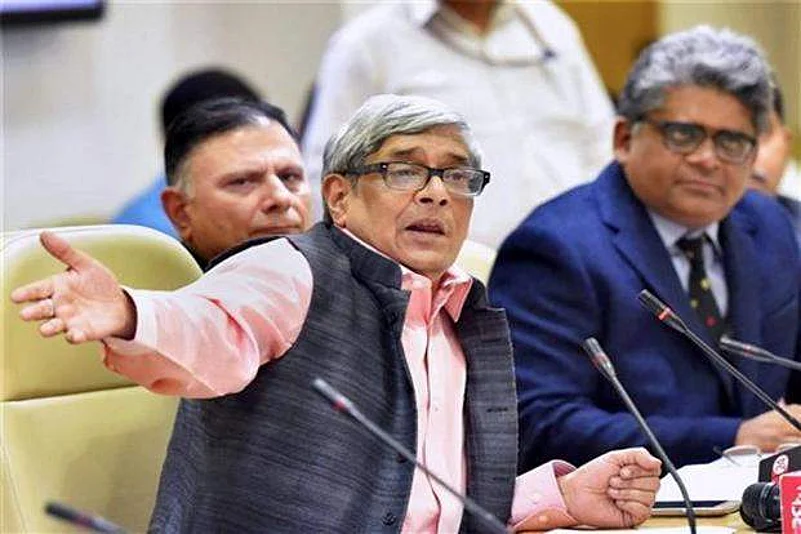Farm reforms in India are pending even today since 1991, while neighbouring China implemented them way back in 1978, Economic Advisory Council to the Prime Minister (EAC-PM) Chairman Bibek Debroy said on Friday.
The reforms undertaken in India in 1991 were pertaining to external factors and industrial liberalisation, and were not related to agriculture, he said.
Currently, agriculture has become unviable and even its share of the country's GDP is declining by 1 per cent per year even as a large percentage of the population is still dependent on this sector for their livelihood, he added.
"Quite often in India, we compare with China. In 1978-79, China reformed agriculture. We are told that reforms in India were implemented in 1991 and pertain to the external sector and industrial liberalisation. Have the reforms in agriculture been introduced? Has agriculture been subjected to "de-licensing"? The answer is no," Debroy said in an agri-summit event organised by Businessline here.
By and large, the input-output, marketing and distribution side of the agriculture sector is controlled by the government, he said, adding "that reform agenda for agriculture is not only been pending since 1991, it is pending even today as we speak at this point".
"In technology, seeds, marketing channels, investments and links in terms of distribution channels -- in each of these you will tend to find controls. Those controls have not gone away...Fundamentally, there is a political economy of resistance," he said.
Debroy opined that the political economy of resistance comes because of the mindset that Indian farmers do not know what is good for him or her and therefore must be protected.
"I don't think farmers need to be protected in that sense. Yes, farming is unviable because input prices are more than other prices. There are issues about insurance. We still do not have satisfactory insurance. Indian farmer does not need to be protected," he said.
What Indian farmers need to be protected is from unwarranted state intervention, he said, adding "If we free Indian farmers from that, I am sure Indian agriculture can be transformed," he noted.
Debroy also mentioned that the consumers have benefited from industrial liberalisation but object to agricultural liberalisation when export-import controls are imposed to check price rises.
He suggested that there is a need to create farm employment opportunities and move towards commercialisation and diversification. He also stressed having modern land records to undertake farm reforms.
"...there are states in India where the last cadastral maps were done in 1910 or 1920s. If this is the state of affairs, I am not even talking about land reforms that come subsequently. I am just focusing on the tracking. ...Until we have modern land records, how can we possibly reform agriculture," he said.
Also, land and the bulk of agriculture are under the purview of states as per the seventh schedule of the Constitution, he added.
On minimum support price (MSP), Debroy said MSP today is tantamount to a procurement price. The moment there is a procurement policy, it distorts choice.
Speaking on the occasion, agri-export promotion body APEDA Chairman M Angamuthu said India targeting to reach 7th position in the global agri-export market by 2025, encashing on its wide product range and price competitiveness.
"Our farm exports touched $50 billion in 2021-22. We were holding 12th position in the global market four years back and have inched up to 8th position now. We will reach 7th position in 2025," he said.
Several steps have been taken to boost exports, including promoting GI (geographical indications) tagged products, and vegan and organic produce, he added.


























.jpg?w=200&auto=format%2Ccompress&fit=max)




